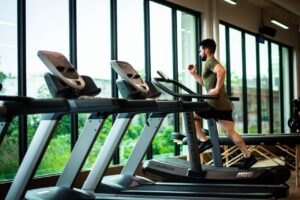
The image source is Pexels.
There’s little you wouldn’t do to help keep your family healthy and safe. The good news is that many things are little, but they add up. Small changes in daily routines are the most beneficial. To that end, have a look at some of the habits you can instill in your family’s routine that will provide the most beneficial results.
1. Take Exercising Seriously, as a Family
This could be as simple as a daily walk. It really doesn’t have to be strenuous in order to be beneficial. What matters is that everyone gets into the habit of going on a longer walk each day. If you have smaller children, pushing a stroller along can be helpful for when they grow tired. Plus, it adds a bit more resistance to your routine. Getting out and into the fresh air is important, and not just for the calories burned. It helps us psychologically and neurochemically to change up our scene, to breathe different air, to do something new. So, whether you choose the evening walk or something else, make physical activity a part of your routine.
2. Don’t Go with Refined Sugar
Yes, it’s easy to fall into some bad habits, especially with quarantine. It’s important that you not resort to sugar, either to keep your kids happy or yourself. It’s a no-win situation, with the sugar having less and less effect, while you rely more and more upon it. First of all, those are empty calories, and you’ll be craving something more nutritious but your palate will have been stunned by so much sugar. Here’s one way to curb the sugar craving—have a bowl of fruit on the counter. Fill it with tangerines, pears, apples, and bananas—whatever your kids are hungry for that week. Then, introduce whole, unflavored almonds into your pantry. Before you know it, your kid won’t always be begging for sweet things.
3. Protect Yourselves
If you are like most families, you can’t afford to stay locked down and away from the rest of the world. So, in order to afford yourselves the most protection, you can buy n95 masks, which can protect you and your family from many of the airborne pathogens. This is a reality, whether we would have it be so or not. Avoid touching your face, wash your hands or use hand sanitizer, and wear appropriate protection when venturing out. You can preclude many gastrointestinal and respiratory illnesses in this way.
4. Drink More Water and Trace Minerals
Yes, we should all be drinking more water and trace minerals. Don’t go overboard, since there’s a certain amount of water your body can make use of but no more. Take half your body weight as a number. This is how much water you should be drinking, and it varies both within an individual or between individuals. However, you must be certain you’re getting enough vitamin C, which is water soluble.
Unlike vitamins A, D, E, and K, this particular vitamin is not oil soluble, which means that the more water you drink, the more vitamin C you will flush out and need to replace. While it’s important to derive many of your nutrients from food, rendering them bioavailable, most people don’t eat enough foods rich in vitamin C. Therefore, supplement your intake with a vitamin pill.
5. Get Enough Sleep
New research has revealed that one of the side effects of covid is insomnia. But it may be the opposite of what we need to be resilient. Getting sufficient sleep is one of the keys to staying healthy on a normal basis. It is the time when your body repairs itself, and the time during which growth happens in young children. But with all the worries and inactivity, it can be difficult to get to sleep. So, while that streaming show may be worth watching, you’ll want to turn it off a full hour before bed. The same should go for all members of the family. Try reading instead—from a book or a magazine. If you’re not much for reading, work a puzzle of one variety or another. Soon, you’ll be ready for some z’s.
Final Thoughts
While there are plenty of do’s and don’ts hanging in the air, it’s important that you keep your family safe during this upcoming year. Try these simple tips and others to improve your family’s immune system and resilience.


